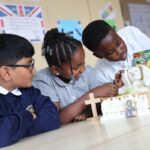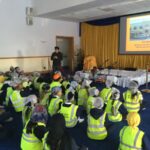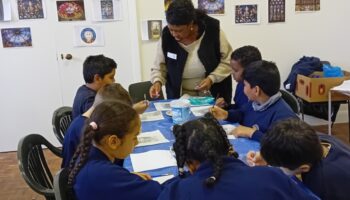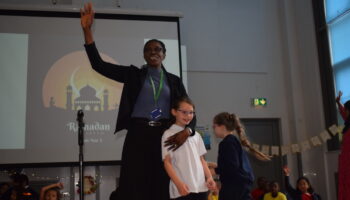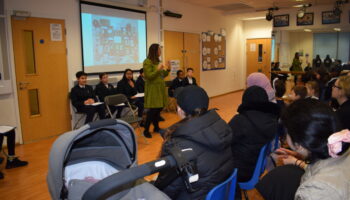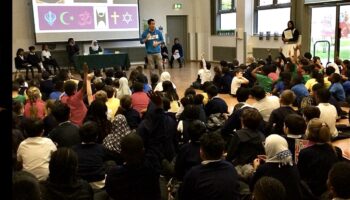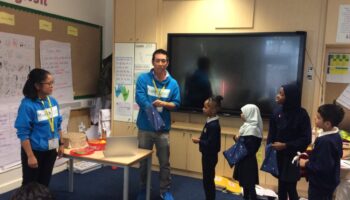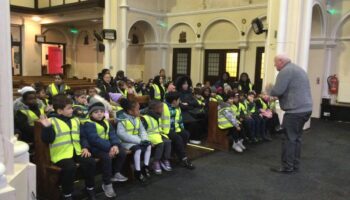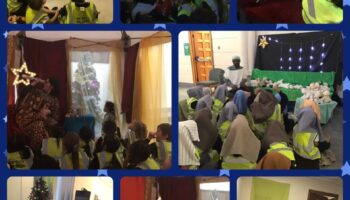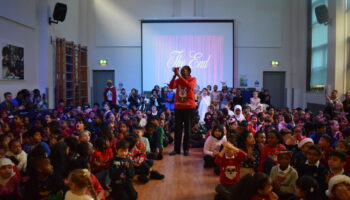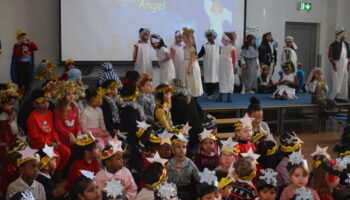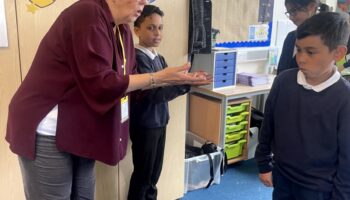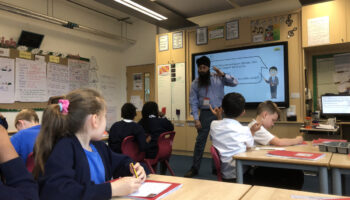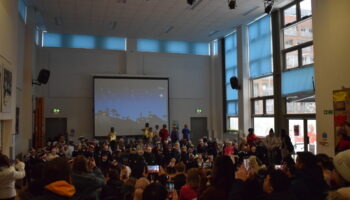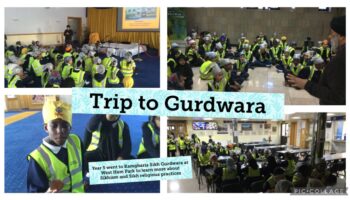Intent
Our Keir Hardie Religious Education Curriculum is intended to support our pupils to become resilient, accepting, mindful and inquisitive learners. We want our pupils to become active and well-rounded members of society, developing a sense of identity and belonging, preparing them for life as British citizens in a multi-faith community.
In RE pupils will communicate through developing a broad and accurate religious vocabulary, reading and responding to a range of written and spoken language (including sacred texts, stories, poetry, prayers, liturgy and worship), communicating ideas using the creative and expressive arts, talking and writing with understanding and insight about religious and other beliefs and values, reflecting critically on ultimate questions of life, using reasoned arguments.
Our learning environment promotes self awareness, curiosity, respect for all, sensitivity towards and understanding of others, open mindedness, trust, community, appreciation and wonder instilling a desire for continuous learning.
Pupils will explore issues within and between faiths to help them learn, understand and respect different religions, beliefs, values, traditions and their influence on individuals, societies, communities and cultures.
We want all pupils to benefit from experiential learning so that they know more and remember more.
Implementation
We ensure we comply with the legal requirements for Religious Education by following the Newham’s Agreed Syllabus agreed by the Standing Advisory Committee on RE (SACRE). We use a variety of disciplines to teach the content of RE which include discussion and debates, experiential learning, philosophy, history, empathy, theology and social sciences and worldviews.
In EYFS, our pupils are exposed to a wide range of sensory learning experiences, inclusive of diverse cultures and backgrounds. This exposure helps pupils understand their own identity while appreciating the richness of the world around them. Incorporating religious, cultural stories and practical activities aids in grasping varied concepts and values, fostering empathy and respect for differences.
In KS1 and KS2, Religious Education is taught on a weekly basis. Our learning is centred mainly upon the Christian faith and traditions as well as other religions and worldviews represented in our community.
In KS1, pupils begin to develop an awareness of themselves and others and to recognise that there are stories, people, places, time and values that are especially important to themselves and to others. They begin to develop their questioning skills which will help them to make sense of and respond to the world in which they live.
In Lower KS2, pupils develop their interest in, as well as knowledge and understanding of, different religious beliefs and practices as well as secular world views. They begin to recognise diversity within, as well as between, religious and cultural traditions.
During Upper Key Stage 2, pupils will develop an understanding of the connection between beliefs and actions. They will increasingly understand some of the ways in which cultural and social influences affect how people practise their religion and will be able to compare their own beliefs and lifestyles with others.
We value first hand learning experiences and ensure our pupils participate in workshops, educational visits, explore artefacts and attend conferences.
To support our curriculum; we hold assemblies every half term celebrating different religious festivals and events. The celebration and learning is also reinforced with a bookshelf display available for others to explore and read. We also organise yearly competitions within our school and participate in external competitions, competing with other schools.
Our place of worship progression model ensures that by the time a pupil, who starts in reception, leaves Keir Hardie, they would have visited 6 different places of worship.
We ensure that staff are able to participate in CPD to support them to acquire mastery knowledge of different religions, faiths or practices.
Impact
Our pupils enjoy sharing their learning in RE assemblies and making links with what they have learnt to their own lives. Our pupils celebrate the richness and diversity within the school with curiosity and mutual respect. They are given the opportunity to listen, ask questions and debate issues. This supports their SMSC development and brings a sense of community cohesion. Through the disciplines used, pupils are ready for the next stage of their education which prepares them for life in modern britain.
In EYFS the related activities are linked to three broad areas of experience; ‘Celebrating Special Times’, ‘Stories and What They Tell Us’ and ‘Aspects of Identity and Relationships’. Engaging in these activities during the Foundation Stage will enable children to begin to: acknowledge their own individuality and that of others, explore the relationships between themselves and those around them, meet visitors and engage with them in different ways, listen to stories and respond appropriately to them, participate, where appropriate, in some aspects of a variety of cultures, experience a variety of special occasions in the classroom and at school and talk about them, talk about and visit special places, share special things, including books, stories, and favourite possessions, respond to their experiences of nature and the world, experience a variety of ways of expressing meaning, attempting to use these when expressing their own ideas e.g. writing, talking, making, creating and roleplay.
By the end of Key Stage 1, pupils have the ability to express their own feelings, reactions and responses as well as learn to respond to others. They develop enquiry skills, to help them make sense of and respond to the world in which they live, while using words related to religion.
By the end of lower Key Stage 2, our pupils talk about and respond to questions about their own beliefs and lifestyles and make comparisons with other religions and worldviews. Information gathering skills are also developed and pupils use religious and other specialist vocabulary with growing confidence, building on and consolidating their learning from Key Stage 1.
By the end of upper Key Stage 2, our pupils develop an understanding of the connection between beliefs and actions. They use religious and technical vocabulary with greater confidence, explaining symbolism and abstract ideas with increasing depth of understanding. They research independently, using a wider range of sources. Pupils recognise that some questions do not have answers or could have a range of answers, depending on beliefs and experiences.
Latest News

